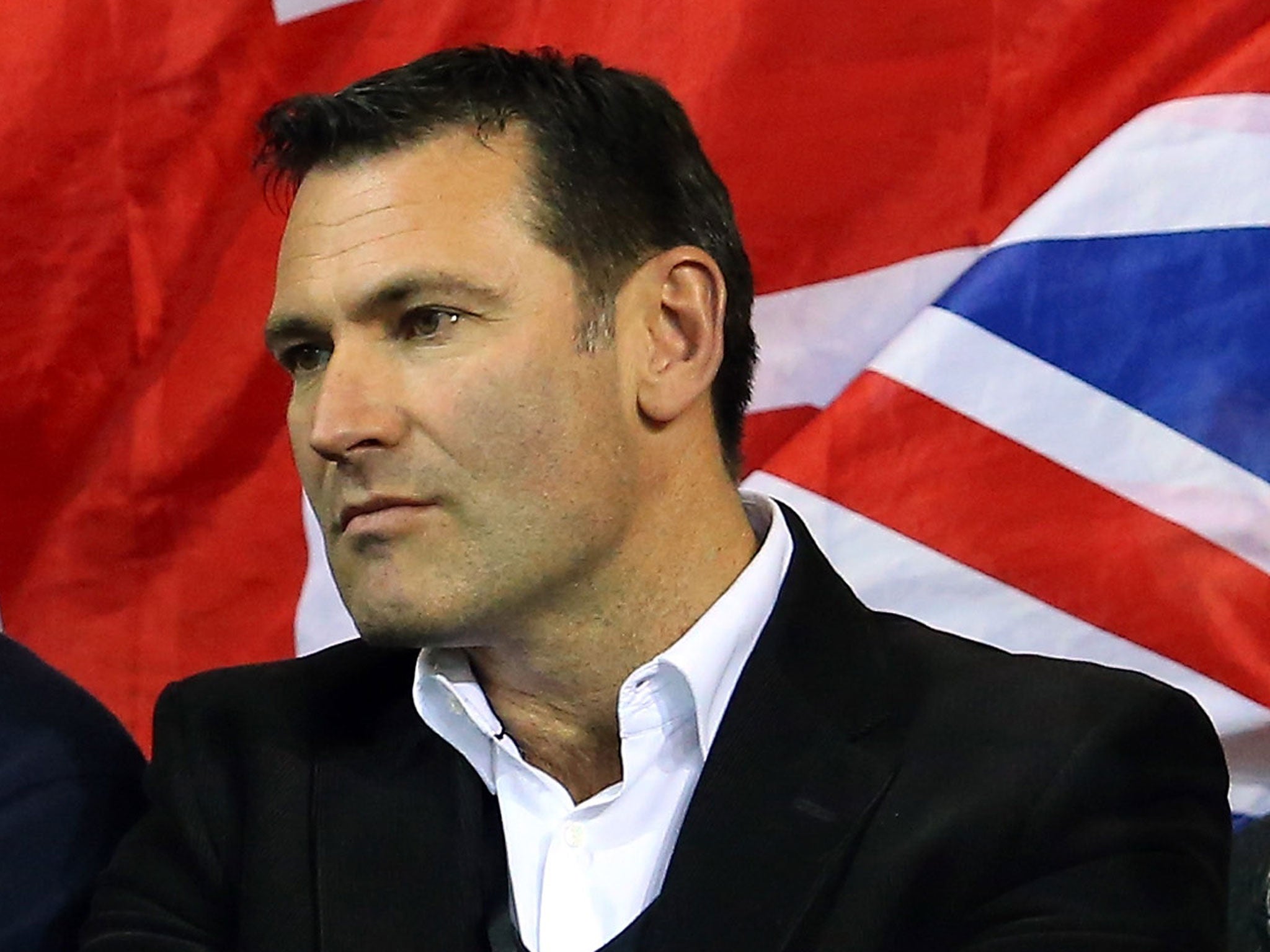The Last Word: Sorry Andy, we're not a tennis nation
The LTA are not fit for purpose but a different, independent system could get us more involved

For authenticity, visitors to the British Tennis Experience, a place of desperate jollity and transparent superficiality situated beneath Court One at the All England Club, should really be doused in effluent for a fortnight and ignored for the rest of the year.
Instead they are offered the opportunity to pose for a photograph which will be posted on Facebook, and subjected to the drizzle of drivel that conventionally constitutes a marketing campaign undertaken by the Lawn Tennis Association. It is big on sloganeering, light on substance. They have created a parallel universe in which, to quote two typically trite suggestions, "Tennis is having fun in a photo booth" or "Tennis is showing the world we have still got it".
These saccharine sentiments try, and fail, to disguise a rising sense of panic and paranoia. The LTA are under notice that they will lose £10.3 million in public funding unless they provide evidence of an imminent increase in participation, which has fallen by almost a quarter since 2008.
That threat provides a sobering subtext to the hyperactivity, which involves Prime Ministerial photocalls, expensively produced blueprints and a blizzard of self-justification, driven by statistics which are no longer taken at face value. If 4.4 million people really are playing tennis regularly in the UK, they have been doing so under cover of darkness.
Significantly, the LTA's outgoing chief executive, Roger Draper, is being hidden away for the duration of Wimbledon, like a mad maiden aunt locked in a Victorian attic. His annual salary of £640,000 is emblematic of a dysfunctional organisation whose future is a matter of urgent and entirely legitimate debate.
We have moved beyond ritual outrage at Britain's underachievement at the Championships, even though the absurdity of Laura Robson being elevated to the status of national treasure suggests la-la land is still situated in London SW19.
Even if Andy Murray fulfils his apparent destiny and exorcises the ghost of Fred Perry by winning Wimbledon, the LTA's lack of impact and credibility will minimise the achievement. Scrapping the LTA, who waste an annual income of £60m on bureaucracy, back-slapping and jobs for the boys, would represent a landmark for British sport.
Governing bodies are, with the exception of streamlined, strategically driven operations such as British Cycling, archaic. They are generally run by unfeasibly ambitious mediocrities or well-meaning enthusiasts, who compensate for a lack of imagination with a deeply ingrained knowledge of the wrinkles in the funding process.
Some already outsource key roles and responsibilities. Tennis has nothing to lose from setting up an alternative structure, independently regulated and underpinned by an entrepreneurial culture. At the risk of restating the obvious, the current system is unfit for purpose.
The LTA's much-vaunted network of 75 so-called Performance Centres, formerly known as Satellite Clubs, are locked into cosy contracts until September 2017. Yet parents of promising players complain of costly, poorly motivated coaches and indifferent facilities.
Though clubs are obliged to provide free taster sessions, many lack sustainable provision for local schools. A prominent headmaster confided this week that competitive tennis in state schools is a "shambles". Another former LTA acolyte, who attempted to align a privately funded academy with the system, has given up and returned to business.
Received wisdom suggests Draper's successor, to be announced next month, will be "good with money", when a working knowledge of the sport's culture would be more appro-priate. Tennis lacks an integrated tournament system. It is compromised by the cloying sentimentality and middle-class pretension which characterise Wimbledon.
The economic climate is daunting and the five per cent cut to grass-roots sport funding, contained in the Chancellor's statement last week, reinforces the lie about an Olympic legacy. The LTA have long since outlived their usefulness.
Let's face it. We are not a tennis nation. Sorry, Andy. Not for the first time, you are on your own.
Pietersen gets back down to business
Kevin Pietersen is back, and don't we know it. Peace in our time has been declared, and the Orwellian process of "reintegration" to the England team is complete.
Just don't expect the real KP to stand up any time soon. He enters the Ashes on his own terms, in a tiresomely familiar state of grace.
Like an increasing number of modern sportsmen and women, he has created a persona that cannot be tested by independent scrutiny.
His major interviews on his return have been given to such trusted allies as Freddie Flintoff and Darren Gough. They may have been substantial cricketers, but will never be confused with Woodward and Bernstein.
External impressions are being formed on the basis of anodyne comments, augmented by commercially slanted releases by personal sponsors which rarely rise beyond the banal.
Statements of fact, such as Pietersen's stated ambition to score 10,000 Test runs, offer no insight into the stability and subtlety of relationships which may very well break down again under pressure.
Pietersen needs the vehicle of the England team. His captain, Alastair Cook, wanted him because he recognised the futility of ignoring a world-class player. It is a deal between business partners, not a love affair.
Tour de farce
Alberto Contador is the biggest threat to Chris Froome's bid to become another British winner of the Tour de France. But as a proven drugs cheat returning from a two-year ban he is also a symbol of the suspicion that stalks cycling. He has no place in a clean sport.
Join our commenting forum
Join thought-provoking conversations, follow other Independent readers and see their replies
Comments
Bookmark popover
Removed from bookmarks